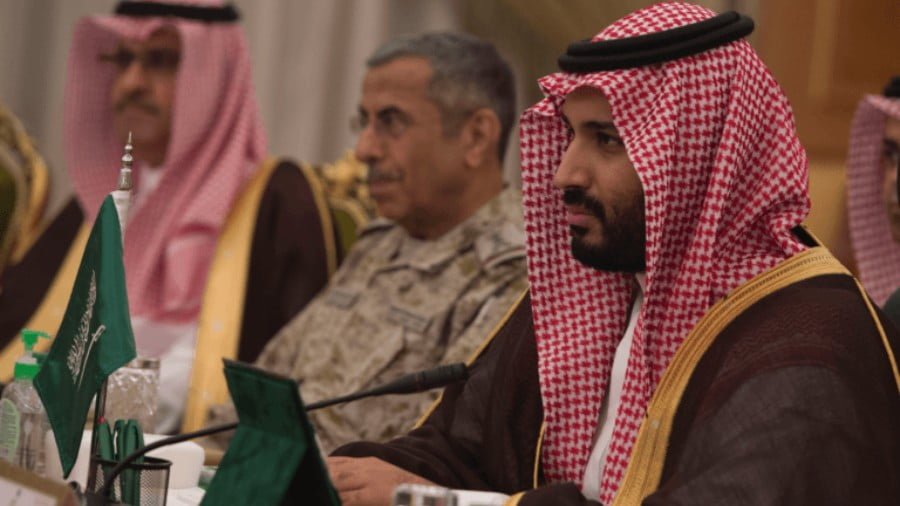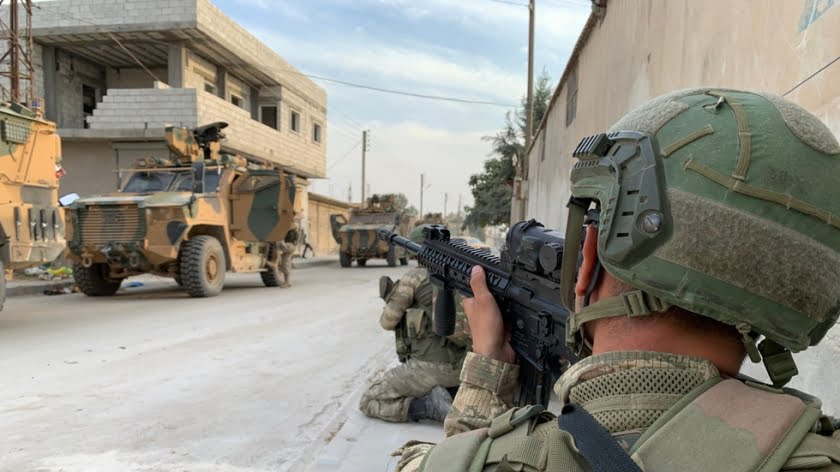Trump, the Crown Prince and the Whole Ugly Big Picture
There are few countries on earth more oppressive than Saudi Arabia, an absolute monarchy shaped by Sunni theocracy. It stones adulterers and hurls gay men off buildings by judicial decision. The State Department routinely, matter of factly, reports widespread human rights abuses in the country. International human rights organizations use Saudi Arabia as the poster child of egregious violations. Everybody knows how Saudi women have been forbidden to even drive cars, although the ban will be lifted due to international pressure in June.
Donald Trump seems unconcerned with such matters. Following the May 2017 sword dance in Riyadh he has cozied up with the Saudi king and crown prince Mohammed bin Salman, who just visited Washington. The pair celebrated the $ 200 billion arms deal last year and more sales to come. Trump noted that the Saudis are “a very wealthy nation, and they’re going to give the United States some of that wealth.”
The prince’s visit drew out Codepink and other protestors targeting Saudi repression and the vicious Saudi assault on Yemen, which has killed at least 10,000 civilians an is currently experiencing what the UN terms the world’s worst humanitarian catastrophe. The U.S. abets this assault with military intelligence and refueling. It justifies the Saudi effort to crush the Houthis and restore the former (unelected) president as a necessary move to counter Iranian influence in the region. Even though there is little evidence for Iranian support for the Houthis. The evidence is rather that the Saudi leaders fear and hate Shiism, and tend to depict any Shiites (in Lebanon, Syria, Yemen etc.) as Iranian pawns.
Yemen was governed by a Shiite imamate for a thousand years. It was Shiite before Iran became so. Its Zaydist form of Shiism differs from the Twelvers form prevalent in Iran, although it resembles the Shiism practiced by maybe 15% of Saudis (suffering discrimination in the kingdom). The war is not about Iran’s alleged influence but about Shiism, and Saudi determination to push back what they consider Shiite gains throughout the region since the Iranian Revolution of 1979.
The young prince is widely viewed as reckless, his Yemen war having become a disaster. Another problematic initiative was his provocation of Qatar, where the U.S. has troops stationed, sanctioning it for alleged terrorist ties (a euphemism for proper trade and diplomacy with Iran, and sponsorship of the Al-Jazeera news network). In the midst of the ongoing crisis, Trump tweeted last November: “I have great confidence in King Salman and the Crown Prince of Saudi Arabia, they know exactly what they are doing….”
There are 10,000 U.S. military personnel at Al Udeid Air Base in Qatar. You’d think the U.S. president would be concerned about the prospects of a Saudi invasion of Qatar, along the lines of the intervention in Bahrain in March 2011 (intended to suppress Shiite protests and protect the Sunni king), if only because such a conflict could involve them. But he is probably unaware of details, or they flit in and out of his child-mind. Heavy praise over the phone instills in him great confidence in his foreign colleague.
So isn’t it wonderful that the Saudis are going to give the United States some of their wealth, by profiting Boeing, providing jobs, so they can better bomb airports and schools in Yemen? They can do so confident that the U.S. media will ignore their war crimes due to the pressing need to cover presidential sex scandals, Russian collusion, the Mueller investigation, school shootings, fake news on the internet, Saturday Night Live sketches, Sarah Huckabee Sanders’ performance, the removal of Confederate monuments, etc. You notice how coverage of Afghanistan, Iraq and Syria has become minimal in the mainstream press. It’s just too painful to report how the U.S. is in a quagmire in Afghanistan, unable to defeat the Taliban; how Iraq remains a horrible mess, as a result of the 2003 invasion, as Iranian influence in the country ascends; how Syria is returning to stability under its secular regime, with Russian and Iranian help, but there is a sharp nascent contradiction between Turkish and U.S. interests in Syria involving the use of Kurdish forces to undermine Assad. All this stuff is too complicated, if not embarrassing, to report. And to report it would be to underscore the fact that U.S. policy foreign has not changed in any fundamental way under Trump.
The reptilian part of the mass mind is primitive as Trump’s. The media keeps saying he has record low popularity. But for a moron to retain 40% support is scary. He has the necessary support base to continue. But CNN and MSNBC are preoccupied with bringing him down, for whatever reason, anything that works.
So we hear next to nothing of Yemen, the Saudis’ bombing of Yemen, the presence of al-Qaeda and ISIL in Yemen. Or the Israeli political crisis. Or the U.S.-Turkish standoff in Syrian Kurdistan. Or the chaos in Libya. The crown prince’s visit ends without any exposure of the nature of the regime because anchors are too busy condemning Trump’s congratulations to Putin on winning the Russian election. As though that message was more outrageous that his praise of the Saudi royals.
Watching MSNBC’s Morning Joe I note the indignation on Miki Brzenzinski’s face as she reports on Trump’s unforgivable congratulations to Putin, against the advice of his advisors. Even though Russian elections are widely considered (by unnamed people) unfair. (Oh gosh. Imagine an unfair election someplace, and heads of state exchanging greetings about a routinely rigged farcical bourgeois-democratic parliamentary process.) That’s the news.
Yemen should first-page news. Capitalist imperialism should be at the heart of discussion. Not Trump himself, not identity politics, not “fake news” but the horrible system itself under which we live and Trump vows to make greater. By selling U.S. jet fighters built by U.S. workers to the Saudis. All the better when they’re shot down and need replacement. By imposing tariffs on foreign steel to protect U.S. steel workers, while likely hiking the price of steel (hence the price of cars hence lay-offs in the auto industry) Trump is posing as a pro-labor president. Just as he does in building the wall to keep out Mexicans taking our jobs.
Lines connect the war in Yemen with White House chaos and earlier wars and market-driven media opportunism. The lines expand out like Indra’s net in the Avatamsaka Sutra and glare back at one another. A culture of war shaped by smirking chimps like Dubya Bush leads to domestic terrorism and school shootings. The misogyny inscribed in corporate culture gives rise to the MeToo movement, just as the president gets hit with more accusations. The system is the problem.
Youth I think increasingly understand this.







